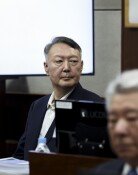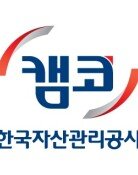Building Plants Becomes Easier Near 4 Rivers and Cities
Building Plants Becomes Easier Near 4 Rivers and Cities
Posted January. 21, 2008 08:16,
The presidential transition committee has pointed out the total water pollutant emission system as one of the top priority reform tasks related to regulations on plant establishment.
Regulations on water pollution hinder not only those manufacturing businesses with strong job creation effect such as Hynix Semiconductor from enlarging plants, but also provincial cities from attracting plants, thus impeding the revitalization of local economies.
○ Regulations on National-Level Plants to be Eliminated First
The total water pollutant emission system, which the presidential transition committee pointed out as one of the tasks for reform, has a merit in that it can simultaneously create positive effect in the deregulation of Metropolitan areas and the revitalization of local economies, as it is related to all the provinces near the four big rivers- the Han River, the Nakdong River, the Seomjin River and the Geum River.
Autonomies under Gyeonggi Province adjacent to the Han River are to decide independently whether or not to adopt the total emission system, and only Gwangju City has adopted the system so far. The concentration system, which judges whether or not to allow plant establishment or enlargement based on the concentration of individual pollutants, is applied instead of total emission regulation on Icheon City, where the Hynix plant is located.
Hynix was not permitted to enlarge its plant regardless of its amount of copper emission, just because one of its procedures involves copper. If Icheon City adopts the total water pollutant emission system which is less strict than the current system and if the amount of copper to be emitted after the Hynix plant enlargement does not exceed the limit, the firm will be able to enlarge its plant.
It is expected that the elimination of this regulation in provinces will improve economic conditions in Jangseong County and Naju City in South Jeolla Province and Jincheon County in North Chungcheong Province, where the enlargement of plants has been impeded due to the amount of emitted pollutants surpassing the limit.
For example, company A, a manufacturer of machine parts, purchased 12,540 m² of land in North Chungcheong region in June 2006 to build a plant, but ended up wasting money because the local government refused to give permission for the reason that the companys pollutant emission surpassed the limit.
We are also considering a pollutant emission trading system whereby enterprises with plants in the four big river areas that have emitted less pollutant than initially expected through their own effort can sell the remaining quota to other companies, said an official of the transition committee.
○ Revitalizing Plants within Cities
The transition committee will also take into consideration expanding plant establishment in common facility zones near cities in order to solve the problem of logistics cost being increased due to the lack of plants near cities. The transition committee is trying to amend the current ordinance of Construction Act, which prohibits manufacturers from entering common facility zones, for example, allocated for laundries, restaurants, or education institutions.
It will enable plants to be built within cities, facilitating the establishment of small enterprises. The transition committee, however, is worried that petitions will increase when plants are built within the common facility zones. Experts say that it is necessary to make micro adjustments such as limiting the type of plants within cities.
In relation to the simplification of the procedures for building an industrial complex, the transition committee decided to deal with the permission of construction in rivers, change in agricultural promotion zone, termination of preserved mountain zone and permission procedures for plant construction, which are currently transacted through separate laws, in package by means of Industrial Site and Development Act.
In order to minimize the shock from deregulation, it is necessary to adjust the order, eliminating regulations that drive down the efficiency of individual enterprises first and then the regulations that influence the overall economy, said director Yoo Byeong-gyu of the Industry Strategy Division at Hyundai Research Institute.
legman@donga.com







